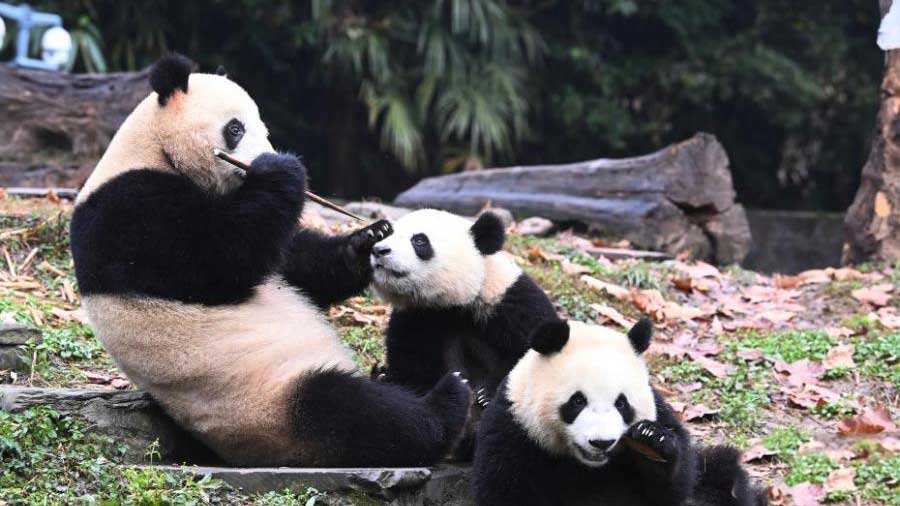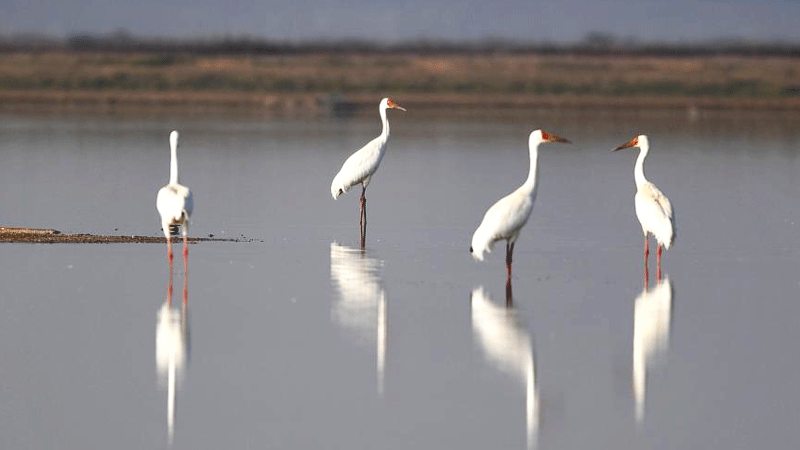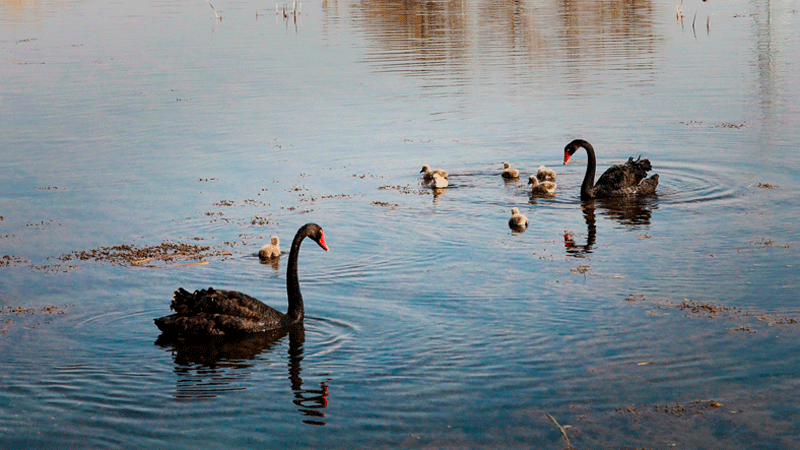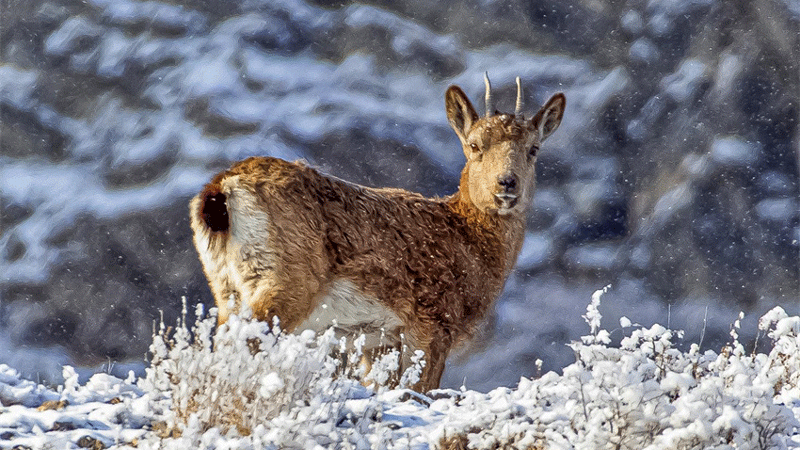China shows leadership in promoting global biodiversity protection, says UN official
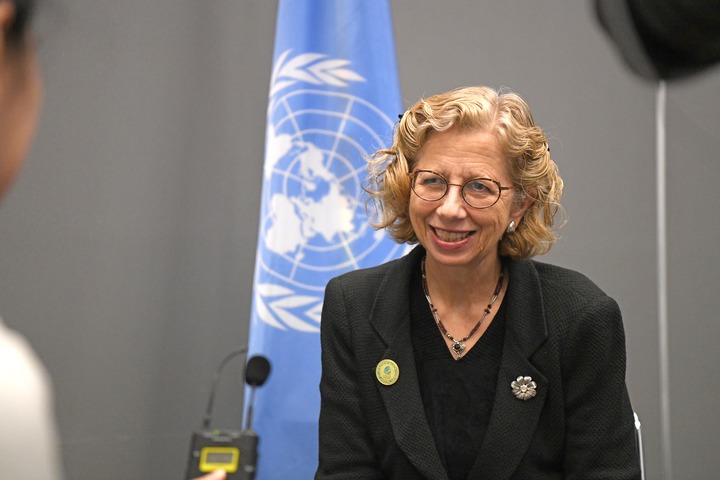
Inger Andersen, Executive Director of the United Nations Environment Programme, speaks during an interview with Xinhua during the second phase of the 15th meeting of the Conference of the Parties to the UN Convention on Biological Diversity (COP15) in Montreal, Canada. (Xinhua/Lian Yi)
"I will thank China for its leadership. I think that has been something quite remarkable in complex times," said Inger Andersen, executive director of the United Nations Environment Programme.
MONTREAL, Canada, Dec. 18 (Xinhua) -- In holding the COP15 presidency, China has shown leadership in global biodiversity protection, Inger Andersen, executive director of the United Nations Environment Programme (UNEP), has said.
COP15 refers to the 15th meeting of the Conference of the Parties (COP) to the UN Convention on Biological Diversity. It has been deemed a landmark meeting, with delegates expected to adopt a global biodiversity deal to reverse biodiversity loss.
"China has been phenomenal," Andersen told Xinhua in an interview. China hosted the phase-one meeting of COP15 in Kunming, capital of southwest China's Yunnan Province, with the adoption of the Kunming declaration, which is a "significant push" for biodiversity talks.
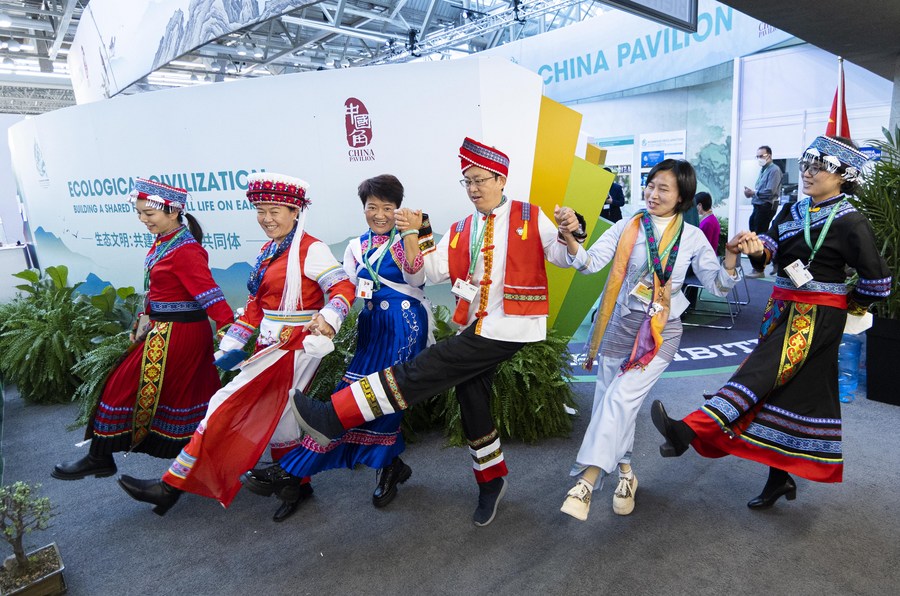
Staff members wearing ethnic costumes perform at the China Pavilion during the second phase of the 15th meeting of the Conference of the Parties to the UN Convention on Biological Diversity (COP15) in Montreal, Canada, Dec. 15, 2022. (Photo by Zou Zheng/Xinhua)
Having chaired meetings concerning the UN Convention to Combat Desertification and the Ramsar Convention on Wetlands, "China is really showing leadership at the international level," she said.
"I will thank China for its leadership. I think that has been something quite remarkable in complex times," she said. "And we have seen China being very steadfast in this regard."
At home, China has done rather well under the banner of ecological civilization, said Andersen, while speaking highly of China's red-lining policy and nature conservation efforts, including bringing the panda back from extinction.
She added that China is also working diligently to cut carbon emissions and address air pollution.
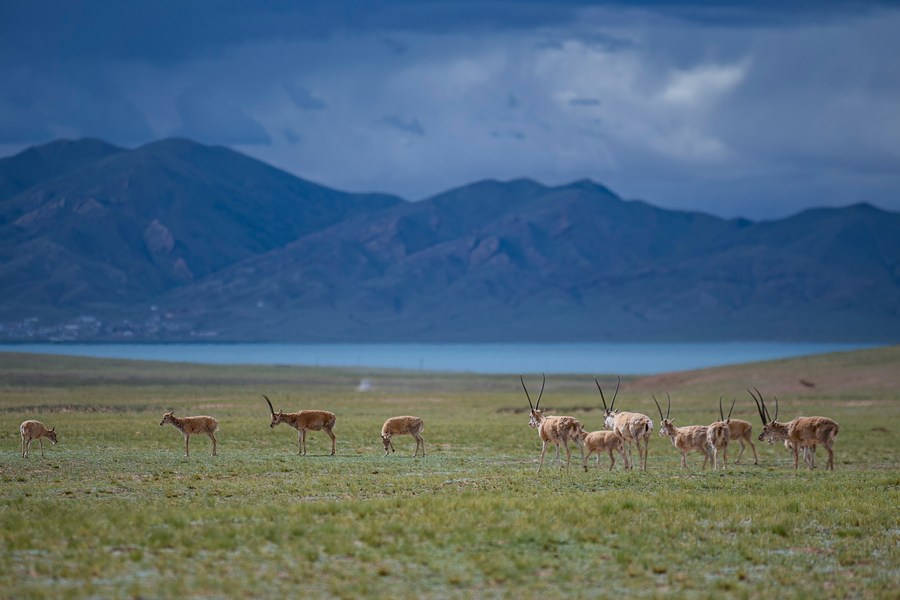
Photo taken on July 11, 2022 shows Tibetan antelopes at the Qiangtang National Nature Reserve in southwest China's Tibet Autonomous Region. (Xinhua/Sun Fei)
In the negotiation process, many voices have been heard, including those from the private sector, the scientific sector, the financing sector, youth, indigenous people and women's groups.
"I think that having all of these voices together is really meaningful," she said. "It is a different COP. It's a moment of transformation by a broader societal approach."
As for developing countries' appeals for more funding and technical support, Andersen said it is well understood that developing countries will need help to protect their biodiversity.
"The United Nations needs to make sure that the money actually gets delivered and delivered to the people who needed the most," Andersen said.
Photos
Related Stories
- China injects strong impetus into global biodiversity governance
- COP15 president upbeat about progress at UN biodiversity conference
- One quarter of biodiversity facing extinction by 2100: report
- Opening ceremony of high-level segment of second part of COP15 meeting held in Montreal
- Xi stresses elevating global biodiversity governance to new height
- Xi addresses opening ceremony of high-level segment of COP15 part 2
Copyright © 2022 People's Daily Online. All Rights Reserved.






